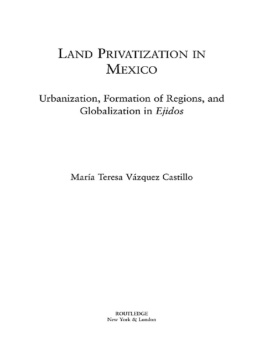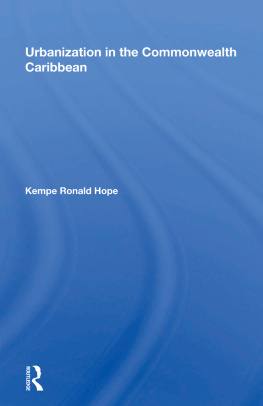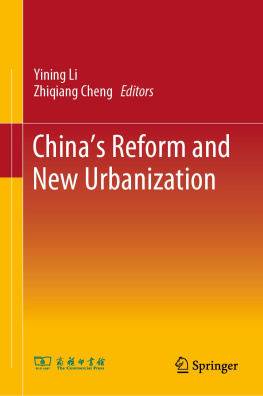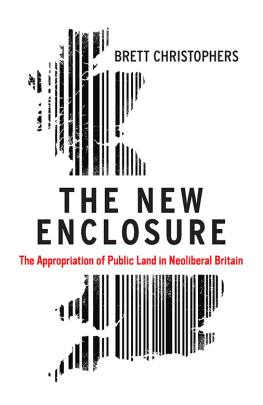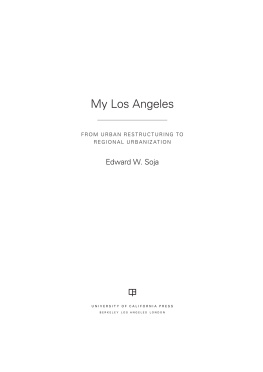LATIN AMERICAN STUDIES
Social Sciences and Law
Edited by
David Mares
University of California, San Diego
A ROUTLEDGE SERIES
LATIN AMERICAN STUDIES: SOCIAL SCIENCES AND LAW
DAVID MARES, General Editor
OBSERVING OUR HERMANOS DE ARMAS
U.S. Military Attachs in Guatemala,
Cuba, and Bolivia, 1950-1964
Robert O. Kirkland
Published in 2004 by
Routledge
270 Madison Avenue
New York, NY 10016
Routledge is an imprint of the Taylor & Francis Group.
This edition published in the Taylor & Francis e-Library, 2005.
"To purchase your own copy of this or any of Taylor & Francis or Routledge's collection of thousands of eBooks please go to www.eBookstore.tandf.co.uk.
Copyright 2004 Routledge
All rights reserved. No part of this book may be printed or utilized in any form or by any electronic, mechanical or other means, now know or hereafter invented, including photocopying and recording, or any other information storage or retrieval system, without permission in writing from the publisher.
Library of Congress Cataloging-in-Publication Data
Vzquez Castillo, Mara Teresa.
Land privatization in Mexico: urbanization, formation of regions, and globalization in ejidos / by Mara Teresa Vzquez Castillo.
p. cm.(Latin American studies. Social sciences and law)
Includes bibliographical references and index.
ISBN 0-415-94654-9 (hardback : alk. paper)
1. EjidosMexico. 2. EjidosLaw and legislationMexico. 3. Land tenureGovernment policyMexico. 4. PrivatizationMexico. I. Title. II. Series: Latin American studies (Routledge (Firm)). Social Sciences and law.
HD1289.M6V39 2004
333.3172dc22 2004001249
ISBN 0-203-32725-X Master e-book ISBN
A mis paps, a mis hermanas y a
mis sobrinas y sobrinos, por permitirme
la ausencia de estos aos.
A mi abuelita, una mujer Indgena
en la Ciudad de Mxico.
A los Zapatistas, por su lucha por la
tierra y el derecho a un espacio.
List of Tables
List of Figures
List of Maps
Acknowledgments
I wish to acknowledge the communities, colleagues, friends, and institutions that, in different stages of my research, gave me their support to design, carry out, and complete this research. Profound gratitude goes to the ejido communities of Ixtaltepec, La Poza, and San Luis Ro Colorado that sheltered me, assisted me, and taught me during my stay in their communities. I also want to thank Alfonso Guzmn and Humberto Aburto, planners of the city of Acapulco; Stephen Joseph, planner of the state of Sonora; the staff of the newspaper El Sur; and the staff of PROCEDE in Oaxaca and Sonora, all of whom provided invaluable data and insights. Special thanks to Chema Gamboa and Nemesio Rodrguez, in Sonora and Oaxaca, respectively. At Cornell, I want to thank my dissertation committee that underwent special health circumstances and survived. I want to recognize Susan Christophersons effort to heal herself, which meant that she could read and keep on directing this research. I want to express my gratitude to Mara Cook, who shared her friends and colleagues in Mexico with me and whose special support has always been present. I thank Max Pfeffer and Barbara Lynch for being Lourdes Benerias proxies during the process of this research. This research was funded with grants from the InterAmerican Foundation, the Ejido Project of the University of California at San Diego, the City and Regional Planning Department at Cornell University, and the Beatrice Brown Award of the Women Studies Department at Cornell University. In different stages of this research I was kindly welcomed and housed at the Latin American Studies Program at Cornell University, the Center for Mexican American Studies of the University of Texas at Arlington, and the Department of Ethnic and Women Studies at the California State Polytechnic University. My thanks go to Debbie Castillo, Mary Jo Duddley, Manuel Garca, and Patty de Freitas, directors of those institutions for their support. My gratitude also goes to friends who housed me, fed me, and took care of me during field research, especially to Daniel Coss Rangel and Amalia, in Sonora, to Margarita Ordaz in Guerrero, and to Gudrun Dohrman and Ms. Musalem in Oaxaca. I want to thank all my friends who read initial, intermediate, and final drafts of proposals and manuscripts, especially Joan Ormondroyd, Myrtle Bell, and Roberto Trevio. Joan became my second mother and unconditional editor in Ithaca; without her support this book would not be in your hands. Myrtle not only read my dissertation chapters, but she also took care of me in Texas. Roberto kindly agreed to edit part of my research. I also want to thank my friend, Greg Thrush, who helped me with some of the graphs and my many formatting questions. My appreciation goes to Ann Peters, Clyde Pea, Barbara Lynch, Takeko Inuma, Pilar Parra and Max Pfeffer for their friendship and for sheltering me while in Ithaca; to Davydd Greenwood for his unconditional support; to Phil McMichael for the food for thought; and to Betty Deakin for providing support in times when I needed it most. I also want to thank those friends who, even though they did not read any piece of this work, were there for me and supported me in the midst of a hostile but rich academic environment, especially to Agustn Andrade, Anglica Guerrero, Ann Forsyth, Armando Meja, Betsy Sweet, Bob Marra, Brett Troyan, Christian Zlolniski, Debbie Castillo, Heli, Gilbert Cadena, Hiromi, Josephine Mahinda, Kate Ambrey, Leni Dharmawan, Loanna Valencia, Margarita Ledezma, Marina Trejo, Mary Jo Duddley, Noah Najarian, Rebecca Hovey, Reina Ramrez, Roger Frahm, Rosa Lpez, Sanae Toyoda, Marina Trejo, Tony Humber, Vernica and Chris Kribs Zaleta, and to those who I do not mention but have a special place in my memory because their encouragement and support made this book possible. Finally, I thank the loving support of my family who encouraged me from Mexico City, especially my unique sister/friend Soledad whose love and encouragement were key in finishing this work.
Chapter One
Deregulating the Ejido: The New Article 27
In the 1990s, widespread deregulation and privatization were the processes that pervaded most economies in the so-called Third World, and Mexico was not an exception. Deregulation and privatization became the messianic recipes that would resolve the inadequacies of underdevelopment and its fiscal hurdles. Supposedly, these policies would bring democracy and efficiency to the economies adopting them. Deregulation and privatization became the policies that supranational institutions exerted as part of their economic restructuring programs to be applied around the world. Within this context, in 1992, the Reforms to Article 27, or Ejido Reforms, were some of the many economic restructuring policies carried out in Mexico. These reforms would deregulate ejido lands, permit their privatization, and open them for investment.
The original Article 27 was the constitutional legislation that regulated land and its redistribution from the end of the 1910 Revolution until 1992, when the Reforms were approved. These Reforms amounted to a counter-agrarian reform and meant for many a further wave of land privatization in Mexico. Such a dramatic reversal triggered a rainfall of questions about the fate of lands in Mexico, the impact of the new legislation on the wellbeing of the communities inhabiting those lands, and the implications of the Reforms at the local, urban, regional, and global levels. Those inquiries about the ejido

